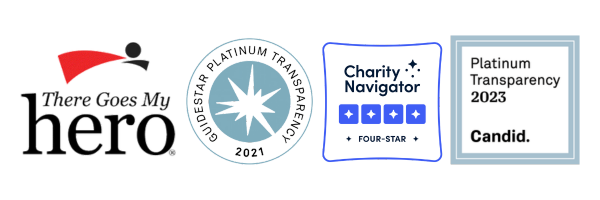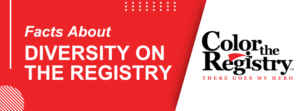Facts About Diversity on the Registry
Color the Registry is There Goes My Hero’s diversity and inclusion program. Our Color the Registry initiative seeks to diversify the bone marrow donor registry so that the registry will reflect the demographics of the United States at large, offering hope to all patients in need of a bone marrow transplant, no matter their ethnic or racial background. Often times, there are misconceptions about diversity on the registry, so here are three facts to learn more about the importance of Color the Registry.
Fact #1: The shortage of diverse donors on the registry costs lives
Every year 17,500 people will need a bone marrow or stem cell transplant to cure their blood cancer or disorder. This includes diseases like Sickle Cell Anemia and Multiple Myeloma, which disproportionately affect the African American community. Only 30% of patients can find a matching donor in their family. The rest rely on the 33 million registered donors. However, because the registry lacks diversity, patients of African, Latin, and Asian descent have a harder time finding a matching donor. While patients of European descent have a 79% chance of finding a match, only 25% of African American patients find a donor.
Fact #2: Ancestry is the key to a perfect match between donor and recipient.
The factors tested to make sure the donor and recipient are a match, and the transplant can work are called Human Leukocyte Antigens (HLA). The best chance of finding a perfect match is with someone of the same ethnicity. Multi-racial/ethnically diverse individuals often have rare combinations in their profiles, making it even more difficult to locate perfect matches. It is urgent that more multiracial individuals join the registry.
Fact #3: Myths about donation prevent people from registering.
Many potential registrants are concerned with how their biological data will be used, who they may be asked to donate to, and whether the procedure hurts. All donor health information and data are kept confidential in accordance with HIPAA laws. If you are selected as a match, the patient’s health information is also kept confidential. The two methods of donating are safe, outpatient procedures.

